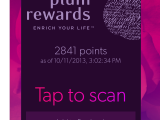Just in time for the holiday season, Indigo Books has ramped up efforts to entice shoppers back into stores.
The brand announced the launch of its mobile shopping app across iOS and Android devices, as well as its partnership with American Girl, a Mattel-owned toy brand based out of the U.S., known for its dolls and accessories.
The brand jumped into the mobile space at the tail end of October, with a marketing push that began Nov. 1. The brand began promoting the app, which targets loyal shoppers and heavy online users across all ages, (skewing slightly female), through an email blast to its five million subscribers, and also rolled out in-store signage and training for its employees.
The app, which was driven largely by demand from consumers (and a realization that nearly a quarter of all online traffic was coming from mobile devices), will allow customers to access their Plum Rewards loyalty program, receive tailored deals and make gift and wish lists, says Sumit Oberai, CIO and EVP of digital, Indigo.
“We have Indigo Ideas – a space on our Facebook page and website where customers can give us feedback and vote on each other’s ideas – and we think we ticked off 10 different [suggestions] submitted by our customers with our mobile app,” he says. “We were hearing quite loudly from our customer base [that they wanted] a virtual Plum card.”
Further, he says that people had been asking for access to their wish lists in stores, and found that a solution the brand offered a year ago – in-store kiosks – weren’t particularly intuitive as people didn’t think to check a store kiosk when trying to remember their customized lists (a feature on the website that’s been growing rapidly, Oberai says).

The app allows customers to scan items while browsing in the store and order the merchandise for home delivery. When customers check into a store through the app, they can also get tailored inventory lists and receive targeted deals. “This is about cross-channel. We’re not measuring success only by ‘did we increase [e-commerce or in-app] sales?’ It’s also about driving retail sales and customer engagement,” he says.
Indigo also scored points with consumers by introducing an exclusive partnership with American Girl, a Mattel brand that sells dolls that are “age appropriate” for young girls, at two of the brands’ stores in Toronto and Vancouver. The move will see Indigo roll out “stores within stores” dedicated to the toy.
This is the first time the line has ventured outside of the U.S., where it has a well-established branded retail presence, a magazine and a film franchise.
This follows similar partnerships with Moleskin for a dedicated section, as well as an all-electronics section in stores, and is indicative of the brand’s approach to stemming its financial woes.
The brand has experienced consecutive years of revenue decline, recently posting a $41.5 million net loss for the 2012 fiscal year, driven largely by declining book sales. Electronic book readers and tablets and increased competition from Amazon and showrooming are taking a toll, prompting the deeper dive into the gift space broadening its selection to include more fashion (scarves, purses, jewellery), home (frames, dishware, candles), and stationery (including a partnership with designers like Kate Spade and Poppin), and moving away from reliance on books to drive sales.
In its 2013 annual report, the brand states it’s moving to be the “world’s first creative department store, a digital and physical place inspired by and filled with books, ideas, beautifully designed products and creative people who make it all happen.” In 2013, its gift, paper and toy departments experienced double-digit percentage growth, while its digital sales continued to increase.


























